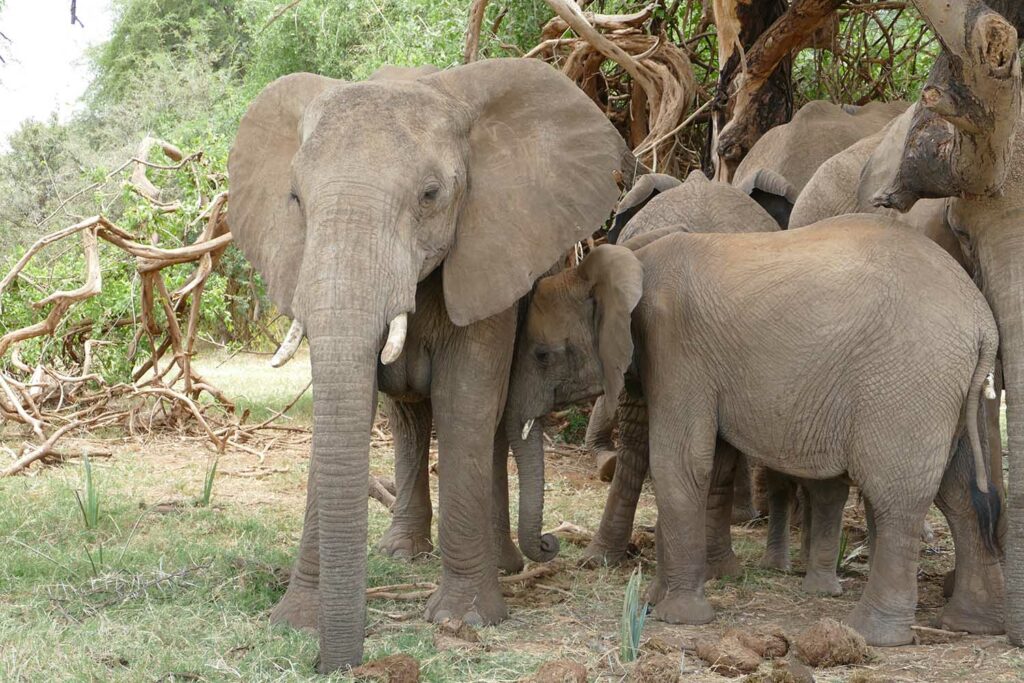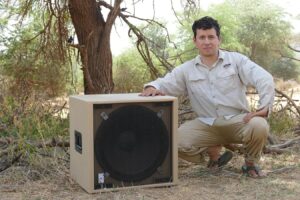Bag End is Helping Talk to Elephants
Vocal Communication in African Elephants
Samburu National Reserve, Kenya
Dr. Michael Pardo is a post doctoral research fellow in the Department of Fish, Wildlife
and Conservation Biology at Colorado State University. He recently hired Bag End to build a
custom loudspeaker for elephant field research in order to communicate with the elephants.
Dr. Pardo, with his custom Bag End subwoofer, is currently leading an exploration of
vocal communication in African Elephants. Fieldwork is taking place in Samburu
National Reserve, Kenya. He is investigating the function of vocal learning ability in wild
African Savannah Elephants, including the possibility that elephants call one another
by name.
One of the elephants’ call types, the “rumble”, is the most common and acoustically variable. Large vocal production anatomy is responsible for the low-frequency of the rumbles, with frequencies in the infrasonic range. Long-distance communication is thought possible because low-frequency sounds degrade more slowly over distance than high-frequency sounds, and elephants respond to rumbles produced more than a mile away. In addition, elephant ear anatomy allows them to detect low frequencies. Experiments demonstrate that elephants can detect infrasonic tones and discriminate small frequency differences. There is evidence that the structural variation in rumbles reflects the individual identity, reproductive state, and emotional state of callers.
It is particularly challenging for the loudspeaker system to reproduce not only in the low
frequency spectrum, but with clarity and detail in a range below human hearing. The
superior time domain accuracy of the Infra system provides a more realistic acoustical
environment to the elephants thereby improving the accuracy of research. The
laboratory grade Infra bass technology has met this challenge in Elephant research for
over 25 years.


